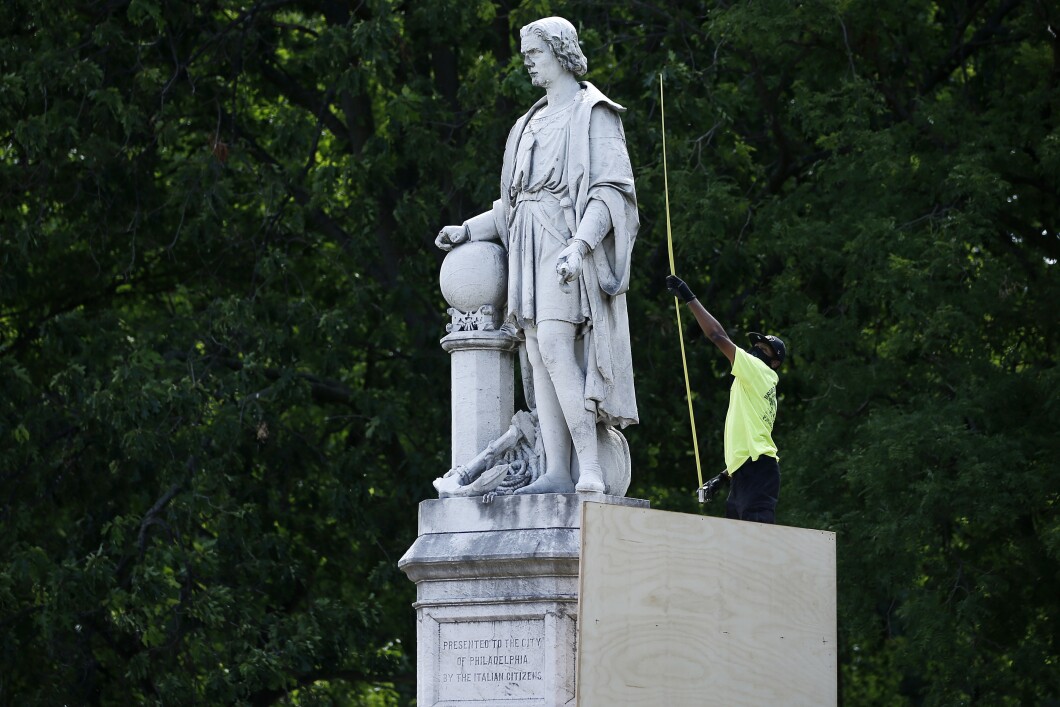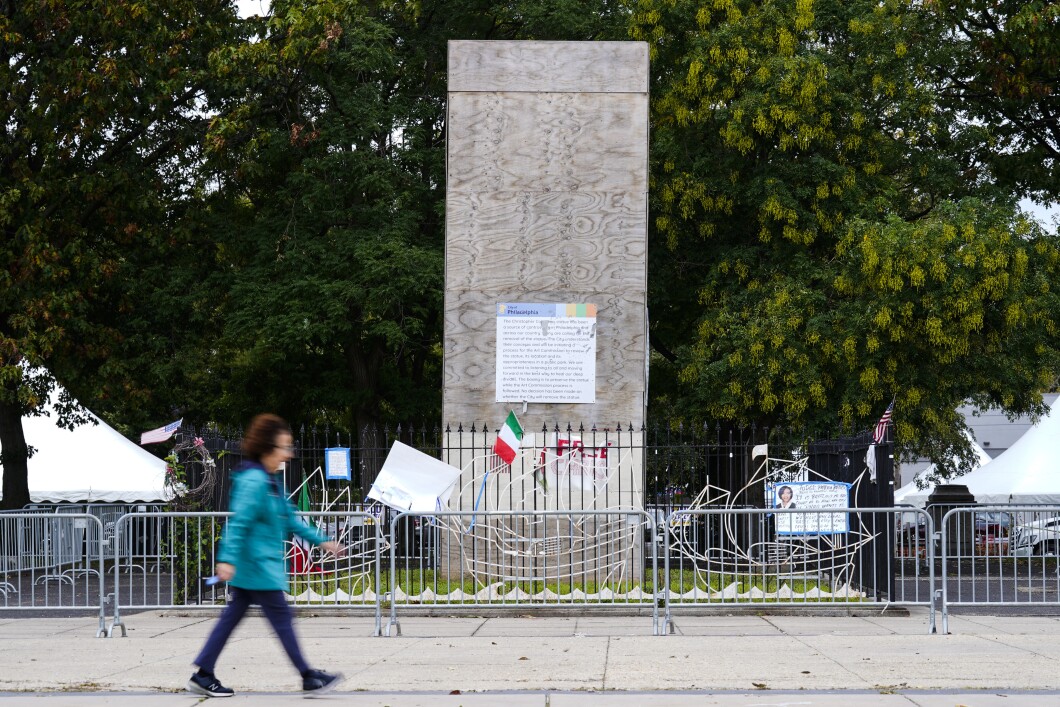
The statue of Christopher Columbus in south Philadelphia stands uncovered for the first time in two years.
Pennsylvania Judge Mary Hannah Leavitt ruled Friday that the plywood box covering the statue standing in Marconi Plaza be removed, saying that if the city disagrees with the statue’s “message,” it should add a plaque explaining what is “more in line with the message the City wishes to convey,” per NBC News.
“More to the point, the City accepted the donation of the Columbus statue in 1876. It has a fiduciary duty to preserve that statue, which it designated an historic object in 2017,” Leavitt wrote in the decision. “The Columbus statue is not City property as is, for example, a City snowblower. Whether the City agrees with the ‘message’ is simply irrelevant to its fiduciary duty to preserve and maintain public works of art that have been designated historic objects.”

DEMOCRATIC SENATOR JOINS CRITICS BLASTING GRINER RELEASE: ‘DEEPLY DISTURBING DECISION’
City crews removed the box covering the statue Sunday night.
The mayor’s office said via a statement that it was “very disappointed in the Court’s ruling” to unbox the statue.

Philadelphia Mayor Jim Kenney had ordered the statue be removed for public safety in June 2020 amid nationwide protests over racial injustice following the death of George Floyd. However, a court halted those plans, saying the city had not provided evidence that the move was needed to protect the public.
Grateful that the Commonwealth Court took the time to review this important matter tonight. The Commonwealth Court reinstated the stay and overturned the Court of Common Pleas order from earlier today. No action will be taken with respect to the statue at this time. https://t.co/mZuujxy4u9
— Mayor Jim Kenney (@PhillyMayor) October 10, 2021
CLICK HERE TO READ MORE FROM THE WASHINGTON EXAMINER
In response to the recent order to uncover the statue, Kenney’s office said it would “continue to explore our options for a way forward that allows Philadelphians to celebrate their heritage and culture while respecting the histories and circumstances of everyone’s different backgrounds.”







